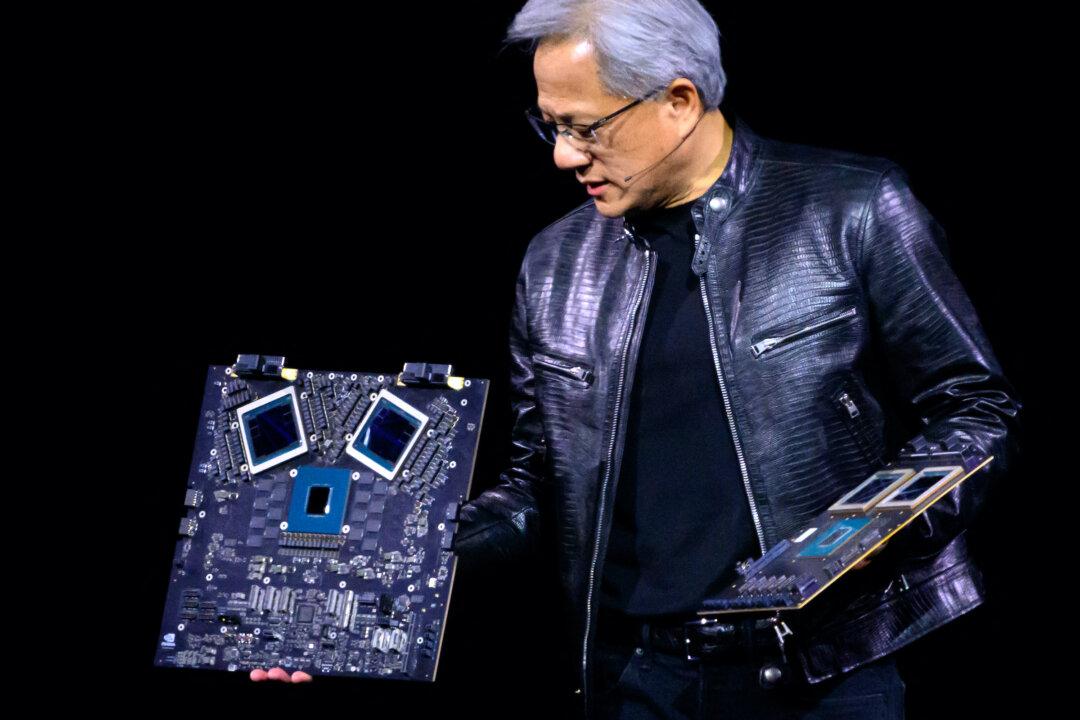Nvidia surpassed Apple to become the world’s most valuable company, with demand for its artificial intelligence (AI) chips fueling the surge in its stock price.
Nvidia Dethrones Apple as Most Valuable Company in World
The corporation’s stock has grown by more than 2,500 percent in the past five years.

Nvidia CEO Jensen Huang displays products on stage during the annual Nvidia GTC Artificial Intelligence Conference at the SAP Center in San Jose, Calif., on March 18, 2024. Josh Edelson/AFP via Getty Images




